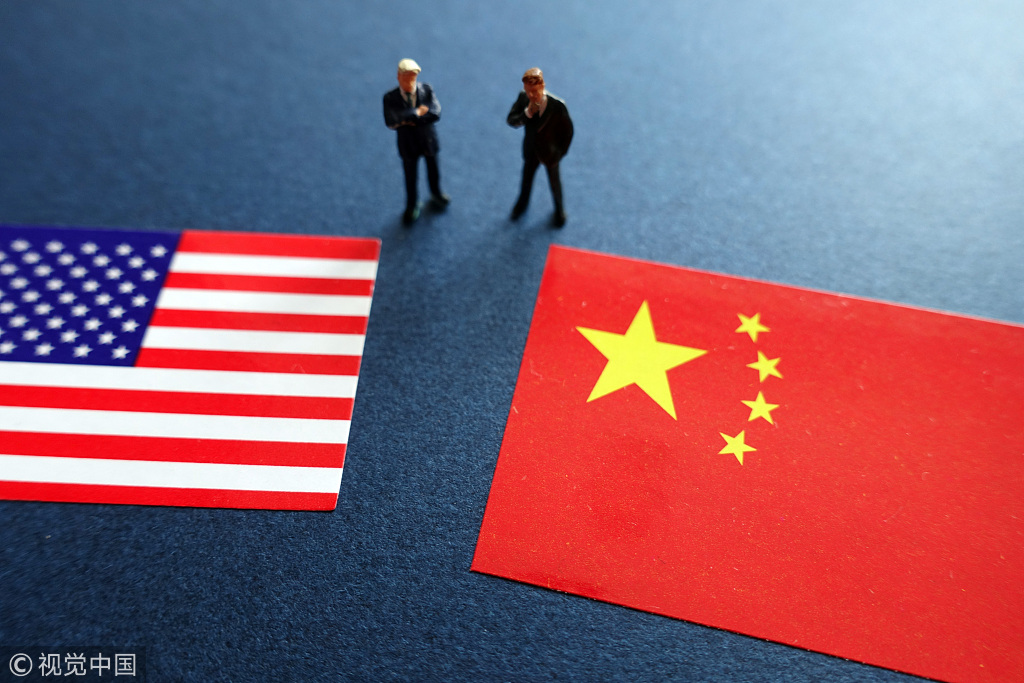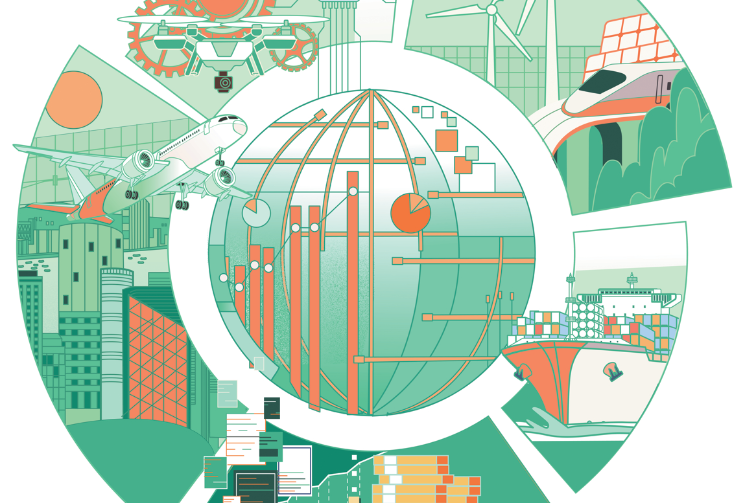Sino-US relations in facts and figures


With Joe Biden assuming the office of the United States president, the world has laser-focused on China-US relations. Irrespective of experts' opinions, however, the fact that the world, especially the US, needs to work with China to overcome the impact of the COVID-19 pandemic is borne out by the following figures.
$316.9 billion and $1.2 trillion
Former US president Donald Trump launched a trade war against China in the hope it would reduce the US' trade deficit with China and prompt American companies operating in China to "reshore" to the US. Yet China's trade surplus in 2020 increased by 7.1 percent to $316.9 billion.
Also, in 2020, US investors held $1.2 trillion in Chinese equity and debt securities — five times higher than the level indicated by the US Treasury Department official data — despite the Sino-US trade war reducing the GDP of China and the US by 0.3 percent and 0.08 percent respectively. This shows both countries will suffer if the trade war continues, so the Biden administration should make finding a way out of the situation a high priority.
$9.03 and $1.9 trillion
Of course, the Biden administration needs to first control the pandemic, revitalize the US economy and increase American people's income. Forty years ago, the average hourly income of the American middle class was $9.17. Today it is $9.03. The middle class accounts for about half of the US population, and often determines the outcome of elections. Therefore, despite facing a debt of $27.76 trillion, the Biden administration has announced a stimulus package of $1.9 trillion to help the American middle class to overcome its problems.
However, the Biden administration has said it will approach its China policy with "strategic patience" instead of ending the trade war, which seems to indicate it could continue Trump's policy of restricting science and technology cooperation and sanctioning Chinese individuals and enterprises.
In 2020, Biden published an article, titled "Why America Must Lead Again: Rescuing US Foreign Policy After Trump", in which he said a rejuvenated US must lead the world and not just the West, which reflects its hegemonic tendency.
8.3 percent GDP and 128,000 scheduled trains
Given the impact of the COVID-19 pandemic, the world cannot wait for the US to recover and provide leadership. By wrapping up the negotiations on the China-Europe Comprehensive Agreement on Investment and signing the Regional Comprehensive Economic Partnership, the EU countries, and Japan, the Republic of Korea, Australia, New Zealand and the 10 ASEAN member states have shown they are "not willing" to wait to provide global leadership.
For example, the latest forecast says the European Union's GDP in 2020 will likely contract by 8.3 percent, and normalcy is unlikely to return before the end of 2022. So the EU intends to revitalize its economy by partnering with China at the cost of going against the Biden administration’s policy.
The countries that are part of the Belt and Road Initiative, too, cannot afford to wait. The pandemic forced many countries to suspend travel and cross-border transportation, but despite that about 12,400 trains departed from Chinese cities to European cities in 2020, establishing a new sea-land transportation network between Europe, Central Asia, East Asia, and Southeast Asia.
As such, the China-Europe Railway Express has given China a significant advantage over the US in terms of strengthening cooperation with Belt and Road countries.
100 trillion yuan and 28 individuals
In 2020, China was not the only major economy to achieve positive GDP growth but also its total economic volume exceeded 100 trillion yuan ($15.46 trillion). And with China considering joining the Comprehensive and Progressive Agreement for Trans-Pacific Partnership, it appears the country will now focus on the wider world, instead of just the US, for further development.
Also, China is taking more proactive measures, as is evident from the fact that it has imposed sanctions on 28 US officials, including former US Secretary of State Mike Pompeo, in response to Washington sanctioning various Chinese officials including some officials of the Ministry of Foreign Affairs.
China's move should prompt US officials to understand the consequences of imposing unnecessary sanctions on Chinese officials and enterprises and send a clear signal to officials in Britain, Australia, Canada and other countries to not compulsively follow the US' example.
20 billion yuan and $163 billion
Yet China and the US still have ample room for cooperation, for example, in climate change, epidemic prevention, public health and nuclear nonproliferation. Another area of cooperation is culture, especially films. In 2020, China's box office collection of 20 billion yuan surpassed that of the US. Which makes China the world's largest and fastest growing film market. If American and Chinese enterprises work together to tap into the full potential of China's huge film market and attract more investments, they can reap rich dividends.
The latest UN data show China's inward foreign direct investment increased by 4 percent to a record high of $163 billion in 2020. It was the first time China surpassed the US in terms of FDI. If the Biden administration abandons the Trump administration's economic decoupling agenda and allow US companies to invest in China, American companies can share a large part of China's development dividends.
China is the world's second-largest economy and the only the only major economy to achieve positive growth last year, a year when the COVID-19 dealt a huge blow to the global economy. It means China has learned how to deal with emergencies. It also means China can help other countries avoid economic problems and maintain the global industrial and supply chains.
As for the countries around the world, they should join hands to collectively contain the pandemic and create an environment conducive to boosting the global economy.
Da Hsuan Feng is chief adviser to the China Silk Road iValley Research Institute and former vice-president for research at the University of Texas, Dallas; and Haiming Liang is chairman of the China Silk Road iValley Research Institute.
The views don't necessarily reflect those of China Daily.


































